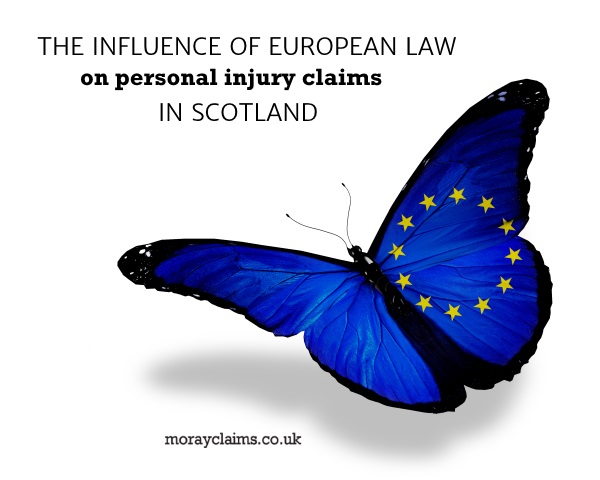‘What have the Romans ever done for us?’ is one of the most quoted scenes from Monty Python’s iconic film, Life of Brian.
John Cleese as Reg, leader of The People’s Front of Judea, poses the question at a secret meeting of the group, expecting no or few positive responses from his colleagues. This, he hopes, will reinforce the group’s resolve to overthrow their ‘pointless’ and unwelcome rulers. Instead, their brainstormed list of the benefits of Roman occupation grows and grows, with great comic effect.
Exasperated, in an effort to bring the discussion to an end, Reg snarls: ‘Alright – but apart from sanitation, medicine, education, wine, public order, irrigation, roads, the freshwater system and public health … what have the Romans ever done for us?’ (The next and final answer, before the meeting is suddenly interrupted by a threatening knock on the door, is: ‘Brought peace’).
The serious point, well made by this film scene, is that the influence of the Roman Empire in the Middle East (and beyond) during the first century AD was considerable. The same can be said about the influence of European Law on personal injury claims in Scotland (and other parts of the UK) over the last 25 years or so.
EU Directives oblige EU Member States to convert them into national law within set timescales. They set out basic principles and lay down minimum requirements.
In this article, we will consider 3 areas of personal injury law where European Directives have played a part in shaping current UK law. We will look at:
- claims for injuries suffered while abroad, often when the UK national is on holiday;
- claims for injuries caused by defective products; and
- claims for injuries resulting from accidents at work.
EU Directives have made provision for victims of road traffic accidents abroad to receive compensation
They will get compensation for injury even where the negligent driver was either uninsured or untraced. If you are injured while on a package tour holiday, as a result of EU law, you can bring your claim in your home country rather than having the hassle and uncertainty of litigating abroad. The European Health Insurance Card Scheme has set up reciprocal arrangements between EU countries to allow nationals to receive free medical treatment abroad.
The Consumer Protection Act 1987 was passed following an EU Directive
The protection it gives consumers is against injury caused by faulty products (e.g. a burn caused by an unsafe candle or a child’s broken arm following the collapse of a recently-purchased garden chute). When this legislation applies to an injury, there is strict liability on the part of the producer of the defective goods. In other words, it is much easier than normal to prove breach of duty.
The most comprehensive influence from Europe is in the field of accidents at work
Via the pre-existing Health and Safety at Work Act 1974, the 1989 European Framework Directive on health and safety at work has been implemented into UK law. This did a lot to harmonise minimum standards across Europe and it gave rise to a raft of UK regulations which have revolutionised claims for injuries sustained at work, since the early 1990s.
The areas of work affected by these regulations include:
- provision and use of work equipment;
- moving and handling of loads;
- personal protective equipment;
- use of display screen equipment;
- the safety of the workplace itself;
- use of lifting equipment;
- work at height; and
- making sure potential hazards are identified and risks properly assessed.
What of the future in the light of Brexit?
If the UK leaves the EU, decisions to create or amend legislation will be entirely “home-based”. Decisions to alter the status quo will depend on political and economic forces. Some prediction of the types of pressures which will apply is possible. The weight of each factor is less easy to predict.
Pressure to deregulate will come from those who see EU regulations as providing an excessive “gold standard” of protection for workers and consumers. This view holds that the present burden of regulation is too great – inhibiting growth and competition.
Examples of current laws which could disappear or diminish in power are requirements for:
- employers to pay for eyesight tests for workers who use display screen equipment; and
- smaller, ‘low-risk’ businesses (e.g. small office-based organisations) to produce written risk assessments.
On the other hand, it can be argued that the EU has set out only the minimum standards now to be expected by workers and consumers in developed, civilised countries. Removing rights hard won through the EU would be a backward step.
Like Reg and the PFJ in relation to the Romans, we may not like all aspects of the influence of the European Union upon us but many would argue – certainly, personal injury lawyers who act for claimants – that, on balance, the EU has changed things for the better, increasing rights and forcing safety standards upwards.
In addition, even after Brexit, there is likely to be economic pressure to retain full access for the UK to the Single Market. In order to do so, we may well have to adopt EU standards as per the regulations, including those affecting personal injury claims.
How we can help
If you have any questions about this article, please get in touch with us. All initial enquiries are free of charge and without obligation. You can contact Peter or Marie in our Elgin office on 01343 544077. Or you can send us a Free Online Enquiry.
